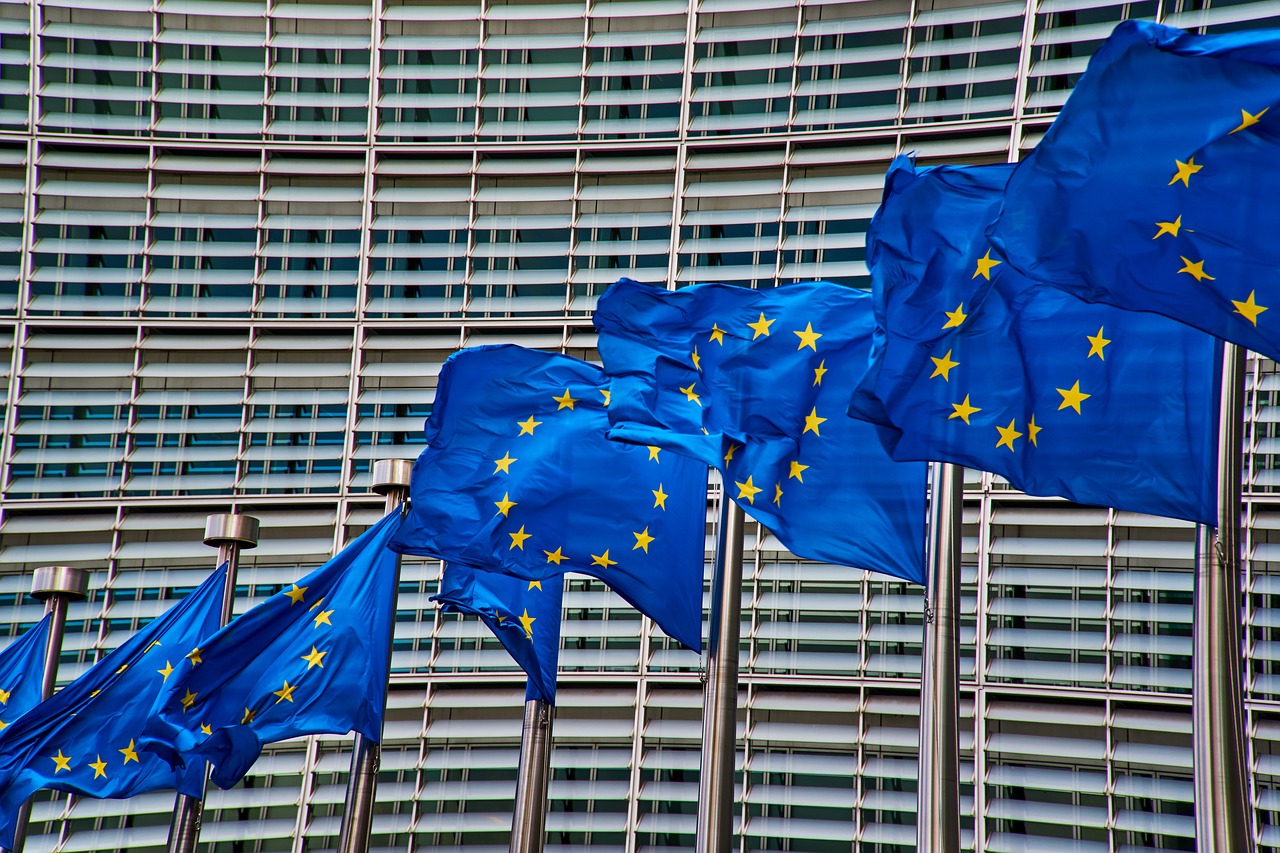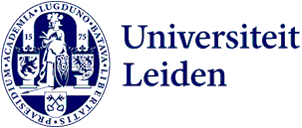
Alumni from Brussels: ‘Leiden University has a fantastic reputation here’
They dreamed of Brussels, worked hard and finally succeeded: working for Europe. The list of Leiden University alumni in Brussels is long. A few days before the European elections, Julia Gencheva and Vincent Miča talk about how they ended up in Brussels and what their jobs entail.
Vincent Míča
Vincent Míča works at the European Commission and is up for election for the European Parliament (Volt, Czech Republic). He studied at Leiden University College (LUC), which was an good foundation for him.
What is your background?
‘I was born in Prague, my parents are Czech, but I did not live there very long. My mother works at the Ministry of Foreign Affairs and soon after I was born, we moved to Kiev, where we stayed for 4 years, Belarus (4 years), Prague (3 years) and Uzbekistan (6 years), where I went to high school. I lived in the Netherlands for 3.5 years, where I studied at LUC in The Hague and in Maastricht. My mother now lives in Brazil and will soon move to Cuba. She has always been my great inspiration, a role model.’

And now you live in Brussels yourself.
‘Yes, after my studies at LUC (2017-2020) I did a traineeship in Brussels, then I started a master's (Law) in Maastricht. Then I was able to work in Brussels again temporarily and continued my master's. I wanted to stay in Brussels, but it didn't work out. It wasn't easy, especially during the covid period. I applied to many (international) organisations, I even applied to work for DHL. I was not hired and decided to leave The Hague and go to Brazil. There, I was suddenly informed that I had been accepted for the Blue Book Traineeship at the European Commission. I graduated last summer, a little before that I started my current job.’
What does your job entail?
‘The official title is Legal Specialist in Market Surveillance and Internal Market Legislation for Products (European Commission DG GROW). It means working on legislation in member states on certain products before they go and are on the market.’
Does the knowledge you gained during your studies at LUC come in handy?
‘Definitely. It is an extension of what I learnt at LUC. I took the International Justice major, so international and European law. All in all, it's a good foundation. Ultimately, it's about the skills you have, like critical thinking and analysing material; my studies at LUC taught me all that. So, I was well prepared.'
What is the atmosphere like in Brussels now?
‘In Brussels we have the EU bubble, which is a real thing. That includes people working in NGOs, consultants and journalists, for example. Everyone is breathing and living the elections, that includes me. Double even, because I am eligible for election in the Czech
Republic. I am running as a candidate there for Volt at spot 22, somewhere at the bottom of the list. I don't campaign, though, but I do share and like things on social media. Sometimes I help Volt people during the weekend.
The elections are very important, we will have a new Parliament and a new Commission. The heart consists of Parliament, Council and Commission. Three big players, two of which will have new leadership, so everyone is waiting in suspense, watching polls and trying to predict all kinds of things. Everyone is working on it.
For Brussels and the Belgians, it is extra special: it is compulsory to vote when you are Belgian, and they also have other elections at the same time, regionally. You see the posters all over town and see politics come alive before your eyes.’
'Everyone is breathing and living the elections, that includes me'
Will your job change after the election?
‘That's hard to say. It depends a bit on whether the leadership of the Commission is going to change, for example the different Commissioners. It remains to be seen; if the current Commissioner stays, then probably little will change for me.
When it comes to the agenda, some things will return to the Commission, such as the administration of legislation that changes little. When it comes to developing new initiatives or deepening certain programmes, it just depends on what the outcome is and what leadership we will get.’
What if you get elected?
‘That's unlikely, but then, of course, a lot will change. Whatever it becomes: I will stay in Brussels. Another very important thing: don't forget to vote! Very few young people vote. You really have to use that right fully.'

Here's where to go on 6 June in Leiden and The Hague
In Leiden, you can do so at the Central Station, the City Hall and the Hooglandse Kerk, among others. Want to combine voting with a museum visit? Then go to Museum de Lakenhal or the Rijksmuseum van Oudheden. In The Hague, you can go to the Ministry of the Interior, Amare or the City Hall, among others.
Polling stations are open from 07:30 to 21:00. More information on polling locations in Leiden and The Hague.
Julia Gencheva
Julia Gencheva (29) was born in Bulgaria and moved to the Netherlands after secondary school, where she did her undergraduate and graduate studies (Public Administration, specialisation Public Management and Leadership at Leiden University). She always wanted to make European policy. That she is now in Brussels to do so is a ‘dream come true’. In Brussels, people speak highly of Leiden University, she points out. ‘The university has - quite rightly - a fantastic reputation in Brussels, so that's a big advantage.’ She now works in public affairs and is Senior Associate in Digital and Internal Market policies and EU affairs at H/Advisors Cicero.

There are many elections this year. What are the challenges and/or chances here?
‘When a member state holds national or regional elections, we pay close attention. This is because it gives us information on what to expect from a country regarding their relations with the EU. The European Parliament elections have been persistently circling Brussels discussion already since last summer and we have slowly shifted focus on analysing and predicting what the next legislature will look like, what policy priorities will drive legislation, and how those could impact the EU and all stakeholders. Aside from the elections keeping Brussels on its toes, we have been busy with other important aspects of the policy process, specifically implementation, compliance, and oversight. My policy field expertise in Digital and Internal Market policies has been defined by a number of prominent and impactful legislations, which are currently being implemented. This then gives us another stream of work to engage with regulators and other experts on those aspects of the policy process. For me personally this has been very interesting as while at the European Parliament we worked on negotiating and agreeing on legislations, now I see what happens after it gets to work on its objectives.'
You worked at the EP, does it make you more interested in the elections?
'I have always been interested in European politics, which also brought me to Brussels. Having worked at the European Parliament (Secretariat of the Committee on Internal Market and Consumer Protection) I had the opportunity to take part in the way EU policies are made - from when a proposal is published through agreeing on the Parliament's position, and then negotiating the final law with the Council of the EU. Now that I have this experience of diving deeper in what exactly happens after we vote, my interest in the composition of the next European Parliament has grown even stronger.'
'I have always been interested in European politics'
Why is it important to vote?
'Unfortunately, it is a widely known fact that European elections draw less attention compared to national ones; however, decisions made in Brussels have an effect on the day-to-day life of every one of us which makes voting this week highly important for everyone in the EU. Another misconception about EU policies is that they are decided by "Brussels alone", which is quite the misinformation. I can comfortably say that the decisions here are a product of lengthy negotiations and compromises between the European Parliament elected by us and the authorities of the Member States. Attending lengthy and challenging policy negotiation meetings that extended past midnight was not uncommon for my time at the European Parliament. Your vote does impact Brussels. Now, it is time to exercise the precious right to vote!'
Do you see a lot of work coming after the results of the elections come in?
'Yes. First, all eyes will be on the European Parliament with setting up the committees, the inauguration plenary sitting in July, election of President of the Parliament, formation of political groups - will there be new ones or how will the composition be. With a new Parliament, we are also looking at a new collage of Commissioners, a new President of the European Council. In parallel, all legislative work will be resuming which involves completing outstanding policies but also the setting of new policy priorities and objectives. All in all, an eventful summer is at sight.'
How is the atmosphere right now in Brussels?
'There is an atmosphere of anticipation - we have seen many polls from across the Union, we followed hours of debates and campaigns - so now it is the final hours before EU citizens have their say and we all are eager to find out.'
Text: Magali van Wieren
